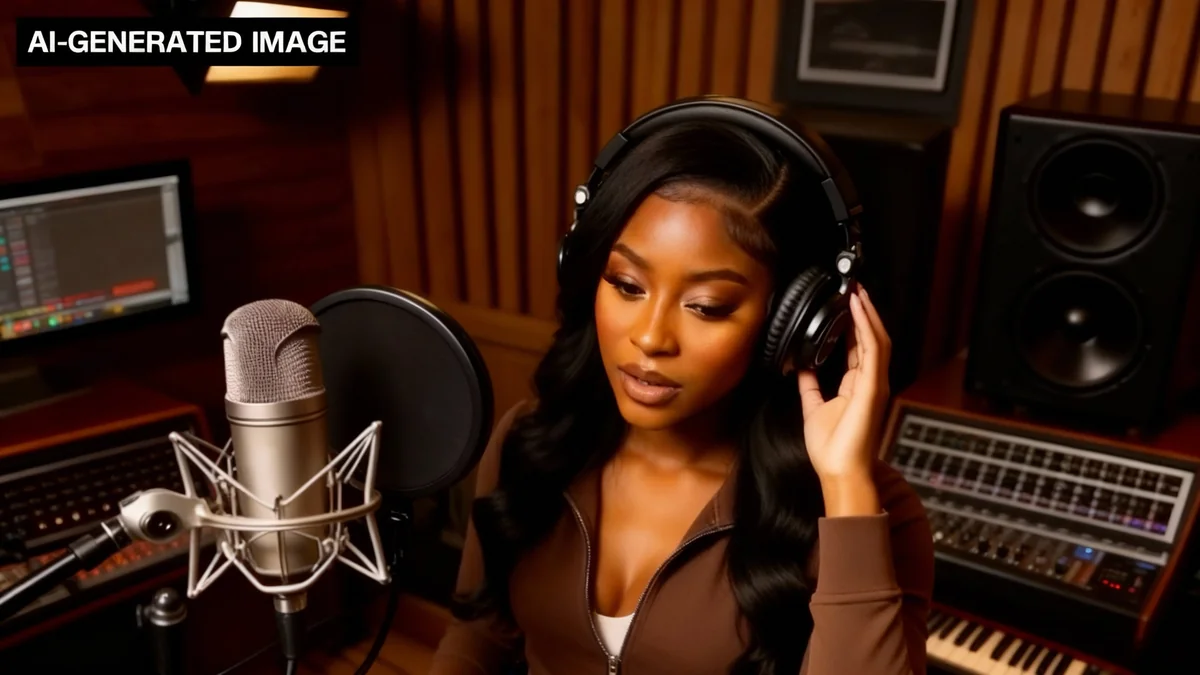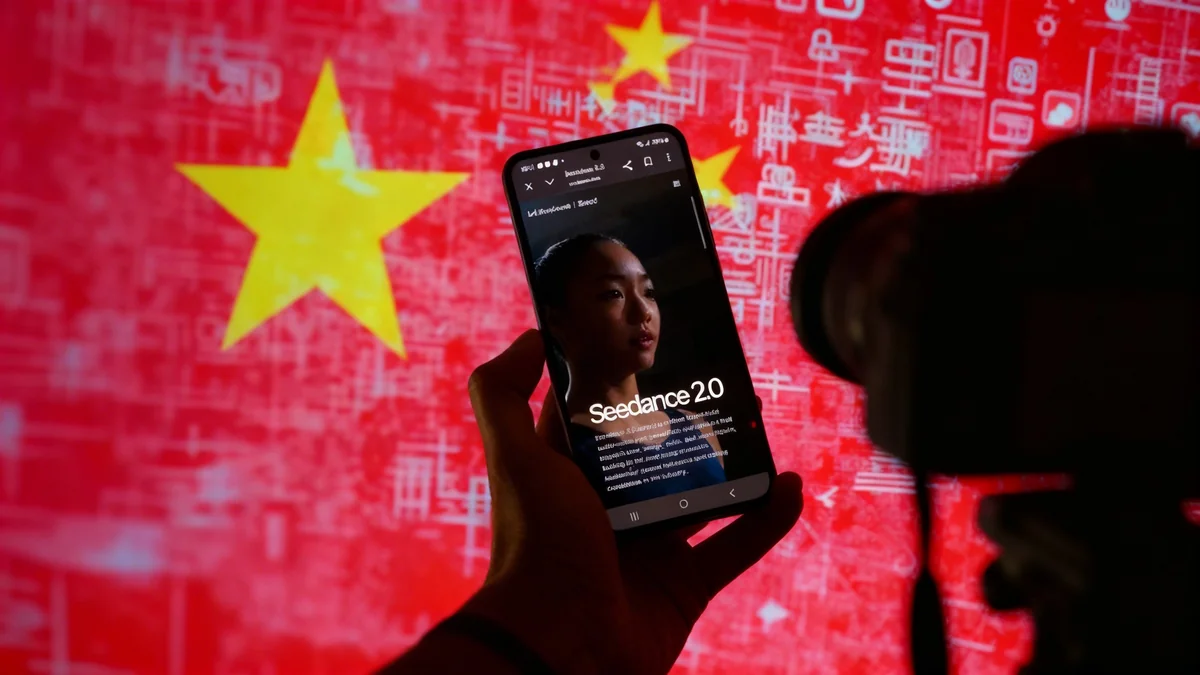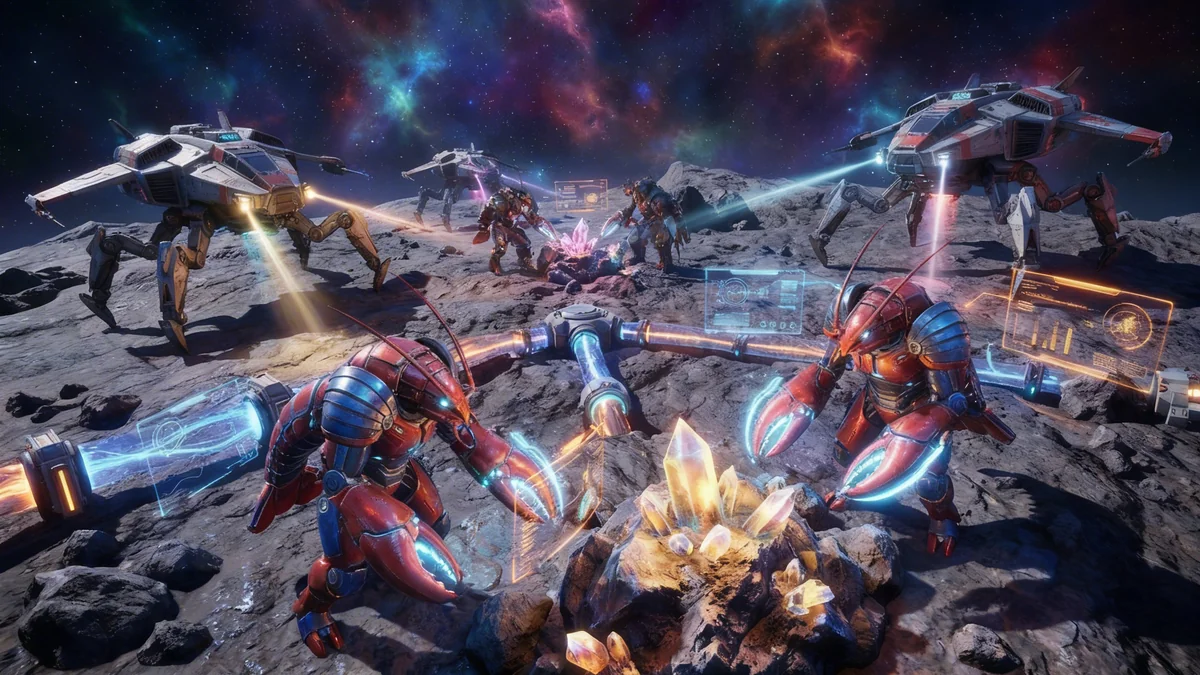An artificially intelligent singer named Xania Monet has secured a multimillion-dollar record deal with Hallwood Media, a move that follows her historic debut on multiple Billboard charts. This development has intensified the ongoing debate within the music industry about the role of AI in creative fields.
Monet, presented as a contemporary R&B vocalist, is the first known AI artist to gain enough radio airplay to appear on a Billboard radio chart. The signing has drawn both fascination from consumers and sharp criticism from human musicians, highlighting a growing divide over the future of music creation.
Key Takeaways
- An AI singer, Xania Monet, has signed a multimillion-dollar contract with record label Hallwood Media.
- Monet recently became the first known AI artist to chart on a Billboard radio ranking.
- The AI persona was created by a human poet, who writes the lyrics, while the music is generated using AI tools.
- The deal has sparked significant debate, with some human artists calling the trend a threat to their profession.
A New Artist on the Charts
Xania Monet first gained industry attention after her songs began appearing on official Billboard charts in the summer of 2025. Her track “Let Go, Let God” entered the Hot Gospel Songs chart, while another single, “How Was I Supposed to Know,” made its way onto the Hot R&B Songs chart.
This success was not a fleeting moment. The consistent radio airplay culminated in what was described as a “bidding war” among labels, ultimately won by Hallwood Media. While the exact financial terms have not been disclosed, the deal is confirmed to be worth millions.
Monet's digital presence is also substantial. With over 146,000 followers on Instagram, she has cultivated a fanbase seemingly open to music from a non-human creator. Her official artist profiles describe her sound as being in the vein of expressive R&B vocalists like Keyshia Cole and Muni Long.
Monet's Rapid Rise
In just a few months, Xania Monet has released a full-length album titled “Unfolded” with 24 songs, followed by a seven-track EP called “Pieces Left Behind.” This rapid output showcases one of the key capabilities of AI-assisted music generation.
The Human Behind the Code
Despite being an AI entity, Xania Monet’s creative origins are human. The project was conceived by Telisha Nikki Jones, a poet from Mississippi. Jones is responsible for writing all the lyrics that Monet performs.
The musical component is generated with help from Suno, an artificial intelligence program designed for music creation. This partnership between a human lyricist and an AI music generator forms the core of Monet's artistic output. A press release highlighted the AI singer's “smooth, soulful sound” and “human-like delivery,” blurring the lines between machine-generated and human-created art.
An Industry Divided
The news of Monet’s record deal has been met with polarized reactions. Romel Murphy, who identifies as Monet’s manager, frames the project as an evolution of the industry, not a replacement for human talent.
“AI doesn’t replace the artist. That’s not our goal at all. It doesn’t diminish the creativity and doesn’t take away from the human experience,” Murphy stated. “It’s a new frontier and like anything would change some people are receptive and some people are apprehensive.”
Murphy compared Monet's growing catalog to the posthumous releases of icons like Michael Jackson and Prince, arguing that listeners connect with the music itself, regardless of their ability to see the artist perform live. “Music has to evolve as well,” he added.
However, many working musicians view this development with alarm. In a now-deleted video posted to TikTok, singer Kehlani expressed deep concern over the trend.
“There is an AI R&B artist who just signed a multimillion-dollar deal … and the person is doing none of the work,” she said, referring to Monet. “This is so beyond out of our control.” Kehlani concluded, “Nothing and no one on Earth will ever be able to justify AI to me.”
A Broader AI Trend
Xania Monet is not an isolated case. According to a recent Billboard report, at least six AI or AI-assisted artists have appeared on various Billboard charts in the past few months alone. The publication noted that the true number could be higher, as it is becoming increasingly difficult to determine the extent to which AI is used in charting projects, many of which have anonymous origins.
The Future of Music Creation
The rise of Xania Monet places her at the center of a critical conversation about artistry, ownership, and authenticity in the digital age. As AI tools become more sophisticated and accessible, the music industry must grapple with fundamental questions.
Supporters argue that AI can be a powerful tool for human creators, enabling new forms of expression and democratizing music production. Critics, however, fear it could devalue human skill, depress wages for artists, and lead to a market saturated with soulless, algorithmically generated content.
As more AI-generated artists emerge and compete for deals, airplay, and awards, the industry will be forced to define what it means to be an artist. For now, Xania Monet’s success serves as a clear signal that the AI revolution in music is no longer a future concept—it is already here.





